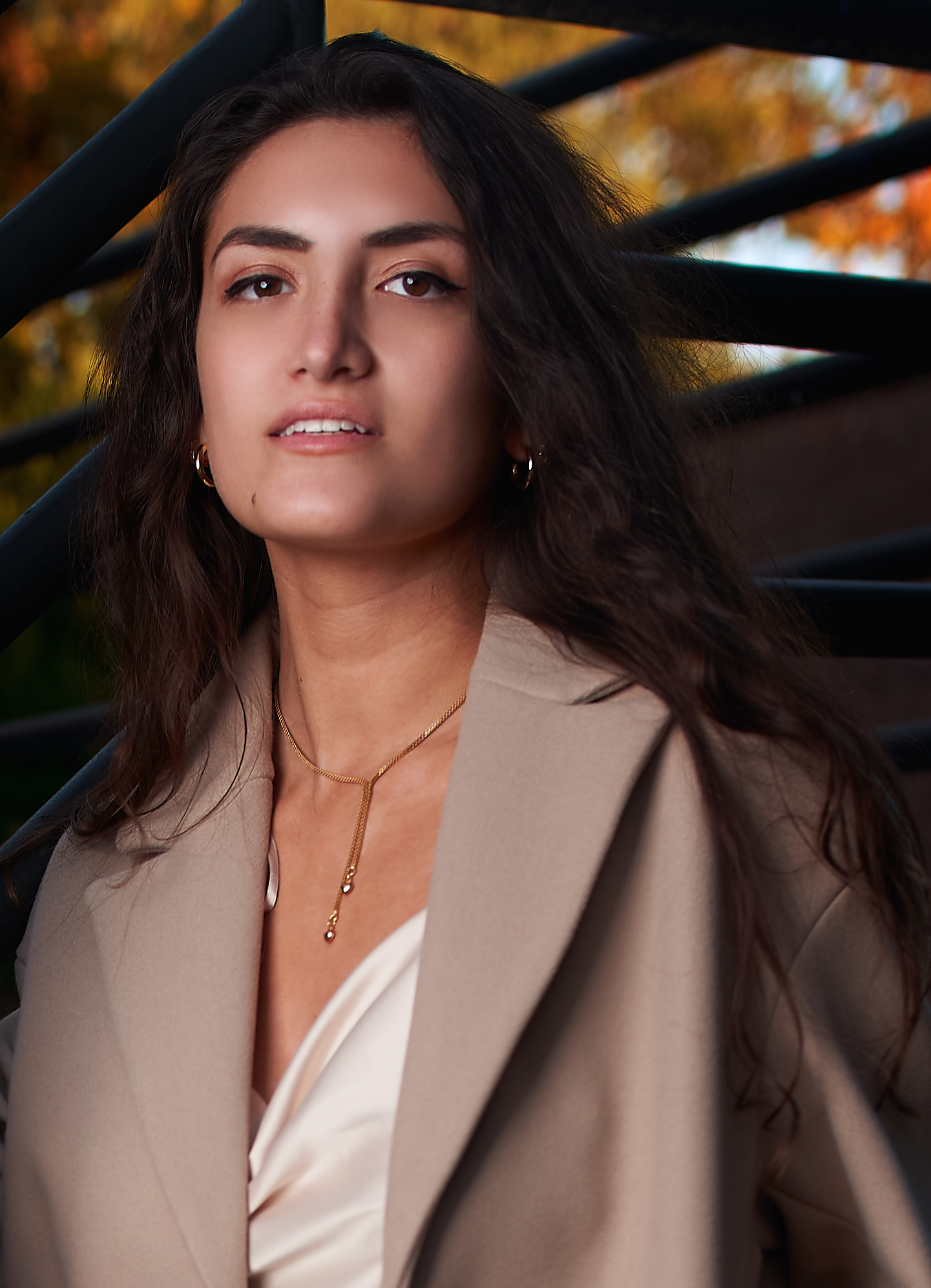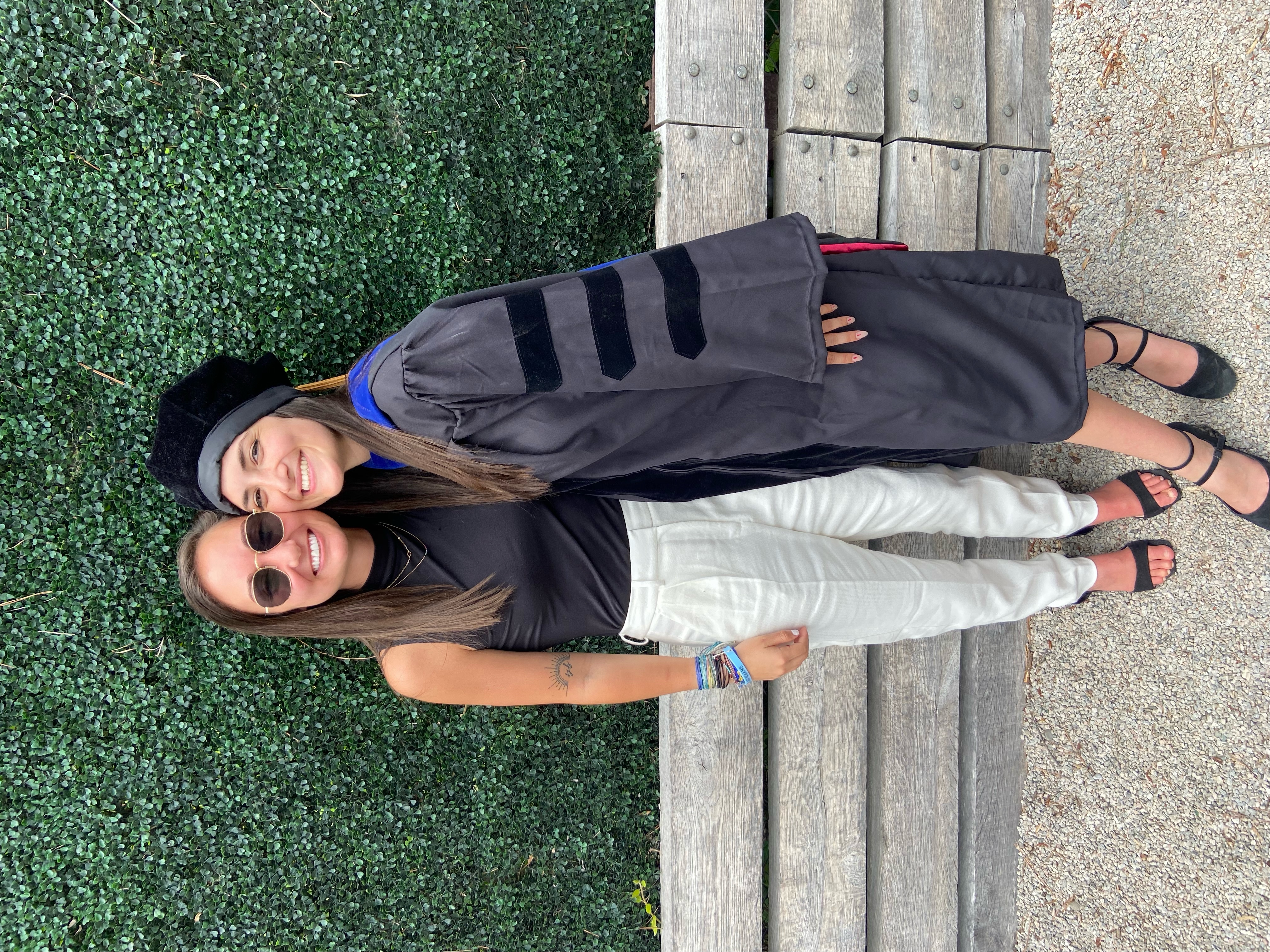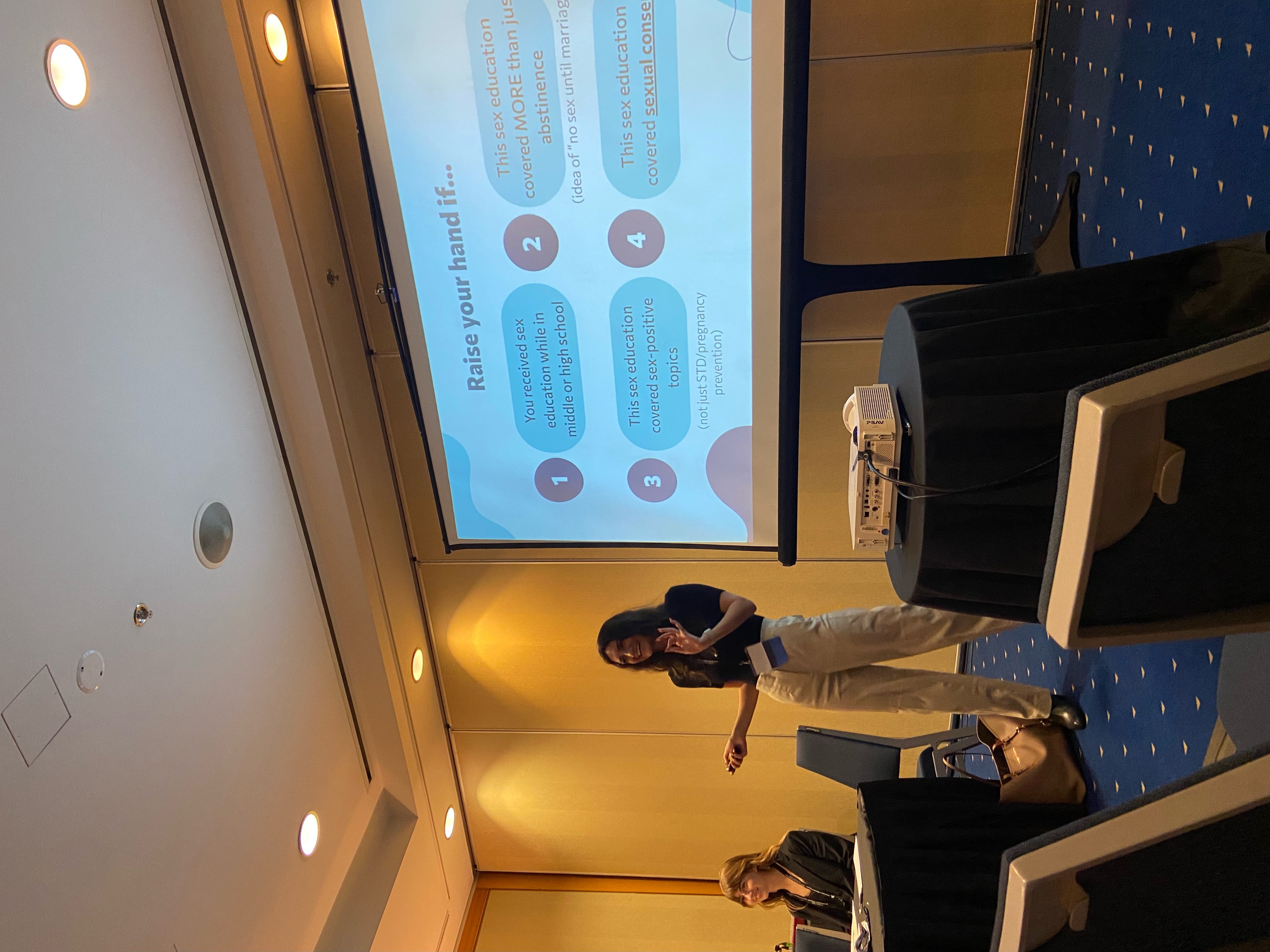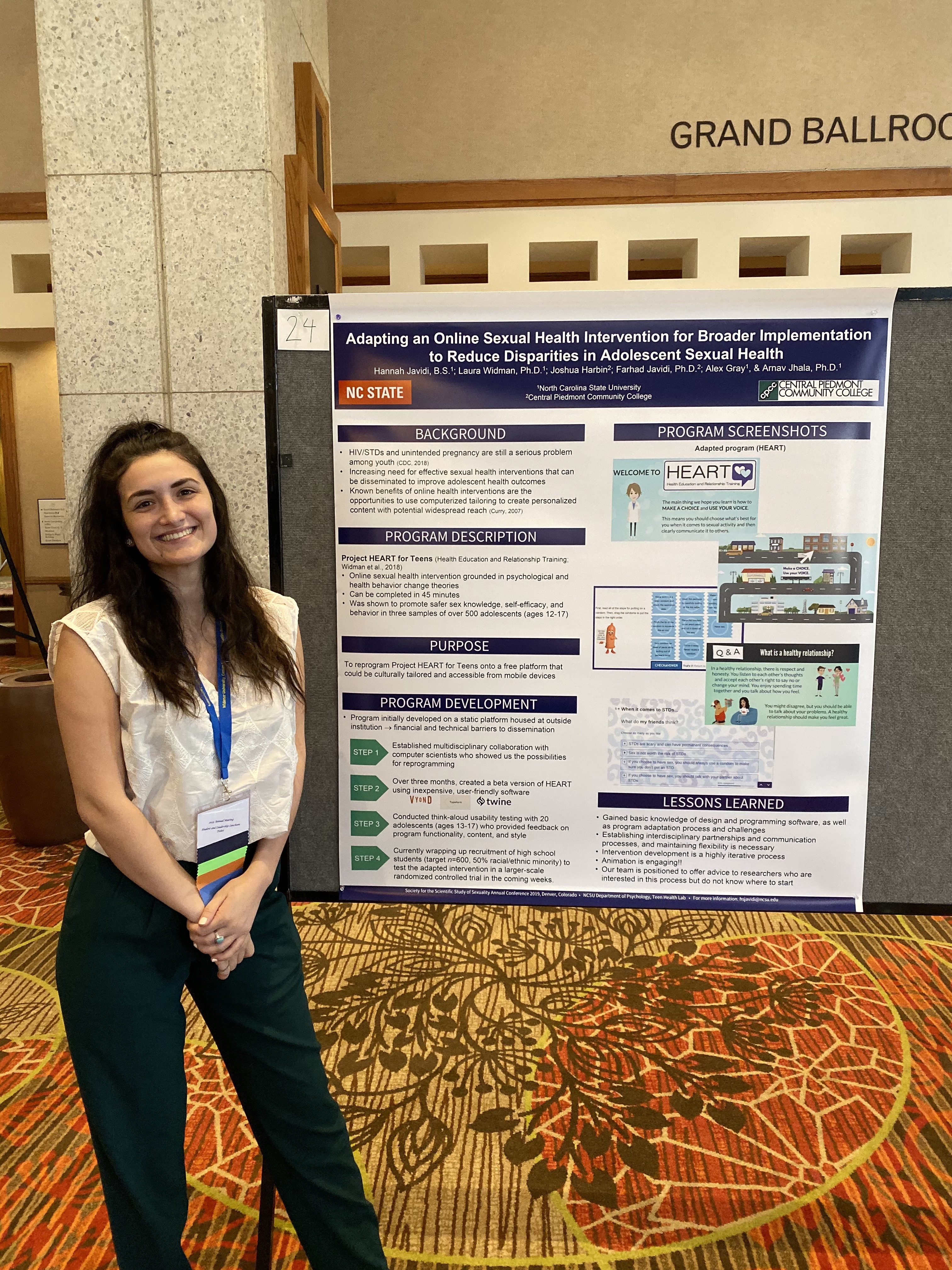Dr. Hannah Javidi is a postdoctoral fellow who works under CSHP faculty member, Dr. Eric Walsh-Bushi. Dr. Javidi shares a bit about her career path, research interests, and offers advice for students interested in a career in sexual and/or reproductive health research:
How did you get to where you are today? What has your career path been like?
I owe my success to my community; the support, encouragement, and guidance I’ve received from family, friends, and mentors in my corner have shaped my career path and confidence as a researcher today.
My parents immigrated to America to pursue higher education and instilled in me and my brother the value of education our whole lives. So, it was never a question of whether I’d attend graduate school, just of what I’d study. I’d originally applied to college with a Biology major, but taking AP Psychology in high school ignited my passion for learning more about the human brain and behavior, so I chose to instead study Psychology for my undergraduate degree at the University of North Carolina at Charlotte with a secondary major in Spanish and a minor in Theatre. When I was applying to graduate schools during my senior year, I applied to Social Psychology-focused Masters and Ph.D. programs. I was unsure about my chances of being accepted into a Ph.D. program directly following my undergraduate degree, especially given my minimal research background, but Dr. Laura Widman believed in my success. This brought me to Raleigh, North Carolina to conduct research in her Teen Health Lab (focused on adolescent sexual health research) as a member of the Applied Social and Community Psychology Ph.D. program at NC State University.
My family was very open and positive about the concept of sex throughout my youth. My parents answered any questions I had about my body, and sexuality as a whole, very candidly and without reinforcing stigmatizing attitudes. This was important for me, seeing as how my school-based sex ed was extremely lacking. I was always interested in learning more about sex and tried to normalize healthy conversations about sexuality with my friends. Although I had profound curiosity in the area, I never took a formal course in human sexuality and didn’t think the pursuit of a career in sex research was in the cards for me until the opportunity to join the Teen Health Lab presented itself. Upon beginning my Ph.D., my interest in asking and answering questions about sex rapidly grew into a deep passion and dedication to the field. I’ll talk about my specific work in more detail for the next question!
What are your primary research interests? What current research project(s) are you involved in or particularly excited about?
As an adolescent sexual health researcher with training in social, community, health, and applied psychologies, I’m committed to understanding adolescents’ sexual behaviors, how these behaviors impact their risk of experiencing negative social, physical, and sexual health problems (including STI acquisition, sexual violence victimization), and how we can implement effective intervention strategies to reduce these risks and enhance their overall health and quality of life.
Most of my research centers on promoting sexual consent knowledge, attitudes, and communication skills among adolescents. Consent education is really lacking nationwide – generally, teens’ main sources of sexual information like parents and teachers just aren’t providing adequate guidance on what constitutes consent or how to navigate boundary-setting with a sexual partner in a safe and healthy way. So, a goal of my work is to provide this comprehensive consent education to help adolescents feel confident and capable when it comes to explicitly articulating their needs and desires with a partner, and ultimately contribute to normalizing a culture of mutual respect and sex-positivity.
We know that young people tend to find talking about consent awkward and uncomfortable. Having the opportunity to learn about consent online can provide them a more comfortable and private way to build their sexual assertiveness skills and simulate tricky conversations without having to be face-to-face with a researcher, partner, or parent. This was the rationale behind my dissertation work. I developed a brief digital program (PACT) to teach adolescents the basics of affirmative consent (“yes means yes” practices): checking in with a partner during ongoing activity, identifying and resisting coercion, revoking consent, generally thinking about their own sexual boundaries. The program was effective at improving consent cognitions (knowledge, attitudes, skills) in a nationally representative sample of adolescents. I’m in the process of submitting a 5-year NIH Career Development grant proposing to adapt the PACT program to serve as sexual assertiveness training for adolescent sexual minority males with a new focus on condom negotiation skills in addition to consent.
I have a few other projects in motion, mostly related to consent, but a non-consent-related one that I’m collaborating on with my mentor, Eric, and am super excited about is an ongoing study with estheticians who provide pubic hair removal services nationwide. We want to better understand their experiences with identifying and discussing concerning symptoms on their clients’ bodies, like STIs or skin cancer, during waxing sessions. Because estheticians develop these close, unique relationships with their clients, they might also be great providers of health information, so we also want to gain an idea of whether they see themselves as health professionals and how willing they might be to lead an intervention aimed at improving client health outcomes.
What do you enjoy most about your job?
So many things, honestly. The freedom is really nice! There’s a lot to be said for the ability to generally set my own schedule and work on research projects that are of most interest to me.
Indiana University is a great home base for a researcher, especially someone doing sex research. There are so many good resources and opportunities for collaboration here with the Kinsey Institute, Biostats Consulting Center, grants team, and more at our fingertips. I feel very supported here. It’s a breath of fresh air.
I also really love the people-part. Everyone I work with – from my academic coworkers, to school and community stakeholders, to adolescent participants – has had a massive positive influence on me and reminds me that the work we’re doing is impactful, important, and good.
I’m so grateful for the continued opportunity for dedicated, individualized mentoring provided by my position – I feel there will always be more for me to learn and skills to further develop! Like I mentioned before, I’ve been incredibly lucky to go from having an amazing Ph.D. mentor, Dr. Laura Widman, straight into having an amazing postdoctoral mentor, Dr. Eric Walsh-Buhi.
Also, I’m not currently teaching in my position at IU, but I taught the Psychology of Gender undergraduate course at NC State for the past three years and being in the classroom with students twice a week is something that I really miss and what keeps me energized about a potential long-term academic career.
What advice do you have for students who are interested in a career in sexual and/or reproductive health research?
My advice would be to attend the Society for the Scientific Study of Sexuality (SSSS) annual meeting! It’s a great time to hear about all the innovative sex research that’s being conducted all over the world, and an opportunity for building connections and networking in a friendly, sex-positive community. I actually met Dr. Eric Walsh-Buhi, who is now my boss here at IU, at the 2019 SSSS annual meeting in Denver while giving a poster presentation as a second-year Ph.D. student!
I leave SSSS each year feeling inspired and re-energized about the work I’m doing. Would definitely recommend attending! There are often student grants that make it a bit more affordable, and volunteer opportunities accompanied by a heavily discounted registration rate. Or, reach out to me! If you’re interested in my research and want to get your foot in the door, I’d be thrilled to discuss opportunities for collaboration (hsjavidi@iu.edu)
What do you enjoy doing when you’re not at work (e.g., hobbies or interests)?
I want to see as much of the world as possible so I try to travel whenever I can! I enjoy going on hikes and walks around town, especially in the fall when the Midwest leaves and sunsets are so beautiful. I’ve recently gotten back into roller skating to keep me active. I love browsing thrift and antique shops (Bloomington Antiques is right by where I live, and it’s my favorite!) Finally, I love simply existing and experiencing the simple beauties of life with my family, friends, partner, and my Siamese cat, Winnie.





